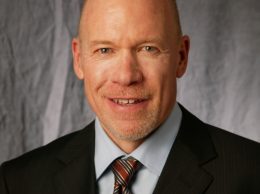Timothy Geithner’s four simple rules for navigating global recovery
 LOS ANGELES — He is surprisingly slight of build, unflappably low-key, well-dressed and, of course, there is that full head of wavy brown hair.
LOS ANGELES — He is surprisingly slight of build, unflappably low-key, well-dressed and, of course, there is that full head of wavy brown hair.
In short, Timothy Geithner has all of the proper accoutrements for the person he is — the 75th U.S. Secretary of the Treasury, a bureaucratic mandarin and President Barack Obama’s go-to guy on all things economic.
During an hour-long chat with World Affairs Council President Terry McCarthy at a hotel near LAX on July 31, Geithner spoke with great eloquence on topics ranging from Europe to the future of California to China’s role in the 21st Century. But listening carefully, I also got a chance to take measure of Geithner, by all accounts the supreme master of bureaucracy and White House intrigue.
And listening carefully to the subtext of his talk, I got an insight into how the global economy really works as we confront the perils of the post-Great Recession world. So, with apologies to script writers everywhere, here are my four simple rules for operating a Geithner-run world.
• Rule No. 1: The time for a bank bailout is always — now.
• Rule No. 2: The time to fix fiscal problems is always — drum roll, please — later.
• Rule No. 3: When tough decisions have to be made, outsource them — preferably to elected officials or foreign governments.
• Rule No. 4: Sympathize with the man-in-the-street — but only after fully implementing rule No. 1.
During his talk, Geithner, who was president of the Federal Reserve Bank of New York from 2003 to 2009, praised the Bush Administration’s bank bailouts in the fall of 2008, stating that acting quickly in a full-blown financial crisis is absolutely essential.
“We were very fortunate that in the grave moment of crisis,” Congress acted to pass the bailout legislation, Geithner said. He also said that European authorities will have to do the same because the cost of inaction is prohibitively high. It means, in effect, “leave the country burning.”
Later on he returned to the core idea that it makes no sense to go back to the Glass-Steagall rules that separated commercial banks and investment banks because they will have to be bailed out no matter what rules are in place.
The key is that when financial crises hit, the bailout of banking institutions must come quickly or the costs will skyrocket. “Markets can’t live on the edge of fear of collapse. The basic instinct of political leaders is to wait, but the costs get magnified over time,” he said.
When it comes to fiscal policy changes, however, Geithner offered no formula for success other than the Obama administration’s tried and true and thus far failed party line. The fiscal cliff is coming but there’s no need for urgency.
Indeed, Geithner said that in a financial crisis it’s always tempting to put austerity measures into place too early and risk derailing a nascent recovery.
While he admitted that uncertainty about entitlement and tax reform is contributing to the sluggish economy of recent months, he offered only the most banal of advice, stating that elected officials have to “find ways to compromise.”
On the other hand, he warned that action on the fiscal front comes with its own share of risks.
A lesson that California’s politicians are painfully learning with their brutal budget cuts is that righting the fiscal ship involves slowing the overall pace of the economy. “Do not put on the brakes too soon,” was the way Geithner described the challenges for the European governments. It might apply in Sacramento as well.
Speaking of Europe, Geithner said he saw the continent’s leaders as very clear in understanding what needs to be done but paralyzed by the political forces that prevent action to shore up the Euro-zone.
“Europe has challenges that will need to be faced for years,” he said. “It’s not complicated but it is a political challenge.” Later, he added, “most of this is about politics.”
Although a sitting administration in control of the Senate might be seen as being responsible for enacting a legislative agenda, Geithner was quick to outsource many problems and their solutions to Congress.
He described and then tried to undescribe Congress as “sitting on” legislation that would help severely underwater homeowners refinance their mortgages. He advocated for the controversial idea of principal adjustment in some instances of extreme hardship.
When pressed on the bank bailouts and subsequent bonuses paid to executives at failed insurance giant AIG, Geithner said he could sympathize with the millions of people who lost jobs while millions of dollars flowed to Wall Street executives who helped cause the financial crisis.
He said he believed that the payment of the AIG bonuses was a moment of “deep unfairness.” But returning to his theme that bailouts are inevitable and must happen quickly, he asked, rhetorically, “Would the average American be better off today if you let things burn?”
In the post-Great Recession world that Geithner has helped build, very large banks will be secured behind their Maginot line of excess capital levels and their living wills in case the unthinkable happens.
But the unthinkable is almost as inevitable as the bailout to follow. And if history is any guide, next time, the cost will dwarf everything that came before.












